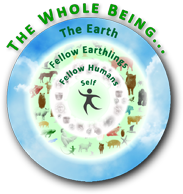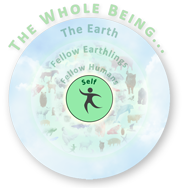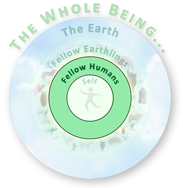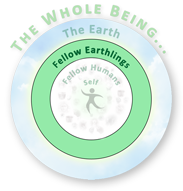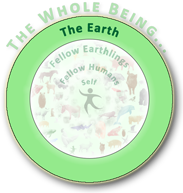Resource Library
To narrow down the list to only resources personally endorsed by CNCL, tick the “CNCL-Endorsed” box.
Please let us know if you find any errors or dead links.
Click here
for a list of…![]()
Broad-Coverage Independent News
& Media Sites
Book: “From the ethicist the New Yorker calls “the most influential living philosopher,” a new way of thinking about living ethically. Peter Singer’s books and ideas have been disturbing our complacency ever since the appearance of Animal Liberation. Now he directs our attention to a new movement in which his own ideas have played a crucial role: effective altruism. Effective altruism is built upon the simple but profound idea that living a fully ethical life involves doing the “most good you can do.” Such a life requires an unsentimental view of charitable giving: to be a worthy recipient of our support, an organization must be able to demonstrate that it will do more good with our money or our time than other options open to us. Singer introduces us to an array of remarkable people who are restructuring their lives in accordance with these ideas, and shows how living altruistically often leads to greater personal fulfillment than living for oneself. The Most Good You Can Do develops the challenges Singer has made, in the New York Times and Washington Post, to those who donate to the arts, and to charities focused on helping our fellow citizens, rather than those for whom we can do the most good. Effective altruists are extending our knowledge of the possibilities of living less selfishly, and of allowing reason, rather than emotion, to determine how we live. The Most Good You Can Do offers new hope for our ability to tackle the world’s most pressing problems.” “Edward Herman and Noam Chomsky demolish one of the central tenets of our political culture, the idea of the “liberal media.” Instead, utilizing a systematic model based on massive empirical research, they reveal the manner in which the news media are so subordinated to corporate and conservative interests that their function can only be described as that of “elite propaganda.” “ Naom Chomsky (political activist): Book, articles, audio and video, interviews, bios, talks, debates and letters. “Principled. Progressive. The Nation speaks truth to power to build a more just society. Home to tenacious muckraking, provocative commentary, and spirited debate about politics and culture, The Nation empowers readers to fight for justice and equality for all. By providing a deeper understanding of the world as it is—and as it could be—we drive bold ideas into the conversation and ignite debates far beyond our pages. We believe in intellectual freedom. We value facts and transparency. We argue that dissent is patriotic and we hold the powerful to account, no matter their political persuasion. We raise up the promise of a radical tomorrow while we agitate for meaningful change today. Above all, we aspire to galvanize a more informed public—one equipped with a more profound understanding of events, ideas, and history. Founded by abolitionists in 1865, we’ve long believed that independent journalism has the capacity to bring about a more democratic and equitable world. Our writers shift paradigms and open minds. Our deep investigative reporting launches congressional hearings, forces policy change, and shapes news cycles. Instigating progress: It’s not only our legacy, it’s our continued commitment to future generations of torchbearers.” “The Nature Conservancy is a global environmental nonprofit working to create a world where people and nature can thrive. Founded at its grassroots in the United States in 1951, The Nature Conservancy has grown to become one of the most effective and wide-reaching environmental organizations in the world. Thanks to more than a million members and the dedicated efforts of our diverse staff and more than 400 scientists, we impact conservation in 72 countries across six continents…Our mission is to conserve the land and waters on which all life depends. Our vision is a world where the diversity of life thrives, and people act to conserve nature for its own sake and its ability to fulfill our needs and enrich our lives.” “”The Nature Of Cities” follows the journey of Professor Timothy Beatley as he explores urban projects around the world, representing the new green movement that hopes to move our urban environments beyond sustainability to a regenerative way of living.” “The Network of Spiritual Progressives is a broad network that seeks to transform our materialist and corporate-dominated culture into a loving and just society. We envision a world based on a New Bottom Line of awe and wonder at the universe where everyone is seen as fundamentally valuable regardless of their role in the marketplace. We call this framework “a spiritual progressive worldview.” Our network includes environmentalists, social activists and people of all walks of life who identify as religious, spiritual, atheist, and secular humanist. We are the interfaith advocacy arm of Tikkun magazine.” Book: “How do you define the good life? For many, success is measured not by health and happiness but by financial wealth. But such a worldview overlooks the important things in life: personal contentment, family time, spirituality, and the health of the planet and those living on it. A preoccupation with money and possessions is not only unhealthy, it can also drain the true joy from life. In recent years, millions have watched their American Dreams go up in smoke. The international financial collapse, inflation, massive layoffs, and burgeoning consumer debt have left people in dire financial straits—including John Robbins, a crusader for planet-friendly food and lifestyle choices, who lost his entire savings in an investment scam. But Robbins soon realized that there was an upside to our collective financial downturn: Curtailed consumerism could lead us to reassess our lives and values. The New Good Life provides a philosophical and prescriptive path from conspicuous consumption to conscious consumption. Where the old view of success was measured by cash, stocks, and various luxuries, the new view will be guided by financial restraint and a new awareness of what truly matters. A passionate manifesto on finding meaning beyond money and status, this book delivers a sound blueprint for living well on less.” “‘The New Rulers Of The World analyzes the new global economy and reveals that the divisions between the rich and poor have never been greater – two thirds of the world’s children live in poverty – and the gulf is widening like never before. The film turns the spotlight on the new rulers of the world – the great multinationals and the governments and institutions that back them such as the IMF, the World Bank and the World Trade Organization under whose rules millions of people throughout the world lose their jobs and livelihood…’The New Rulers Of The World’ is a collision of two of Pilger’s continuing themes – imperialism and the injustice of poverty. It observes the parallel between modern-day globalization and old-world imperialism.” Book: “Jane Kelsey’s was a questioning and challenging voice when she wrote this passionate critique of New Zealand’s economic policies in the 1980s and 90s. The social and economic consequences of a decade of market-based reforms are laid bare in this statistically rich and rhetorically powerful work. Drawing on a wide array of sources, Kelsey’s analysis delves into every aspect of the structural reforms that were to have such vast consequences for New Zealand society. Her analysis of those policies and their consequences gains a fresh – and sobering – perspective in the light of the recent global financial crisis.” Book: “A world dominated by America and driven by cheap oil, easy credit, and conspicuous consumption is unraveling before our eyes. In this powerful, deeply humanistic book, Grace Lee Boggs, a legendary figure in the struggle for justice in America, shrewdly assesses the current crisis―political, economical, and environmental―and shows how to create the radical social change we need to confront new realities. A vibrant, inspirational force, Boggs has participated in all of the twentieth century’s major social movements―for civil rights, women’s rights, workers’ rights, and more. She draws from seven decades of activist experience, and a rigorous commitment to critical thinking, to redefine “revolution” for our times. From her home in Detroit, she reveals how hope and creativity are overcoming despair and decay within the most devastated urban communities. Her book is a manifesto for creating alternative modes of work, politics, and human interaction that will collectively constitute the next American Revolution.” “Love Is Stronger Than Hate. “Nonviolence is not the recourse of the weak but actually calls for an uncommon kind of strength; it is not a refraining from something but the engaging of a positive force,” renowned peace activist Michael Nagler writes. Here he offers a step-by-step guide to creatively using nonviolence to confront any problem and to build change movements capable of restructuring the very bedrock of society. Nagler identifies some specific tactical mistakes made by unsuccessful nonviolent actions such as the Tiananmen Square demonstrations and the Occupy protests and includes stories of successful nonviolent resistance from around the world, including an example from Nazi Germany. And he shows that nonviolence is more than a tactic—it is a way of living that will enrich every area of our lives.” “A partnership of nonviolence training organizations and individuals offering educational programming for nonviolent transformation in our lives and our world” Resource directory: “A partnership of nonviolence training organizations and individuals offering educational programming for nonviolent transformation in our lives and our world” “Evolutionary accounts of the origins of human morality may lead us to doubt the truth of our moral judgments. Sidgwick tried to vindicate ethics from this kind of external attack. However, he ended The Methods in despair over another problem—an apparent conflict between rational egoism and universal benevolence, which he called the “dualism of practical reason.” Drawing on Sidgwick, we show that one way of defending objectivity in ethics against Sharon Street’s recent evolutionary critique also puts us in a position to support a bold claim: the dualism of practical reason can be resolved in favor of impartiality.” Katarzyna de Lazari-Radek and Peter Singer. 24 page pdf “A non-profit organization whose mission is to educate the general public by providing a forum that strives to highlight issues of relevance to human rights, national struggles, freedom and democracy in the form of daily news, commentary, features, book reviews, photos, art, and more.” Articles from The Nonviolent Activist Magazine » NVA July – August 2001 Book: “Explorer, scientist, writer, and humanist, Alexander von Humboldt was the most famous intellectual of the age that began with Napoleon and ended with Darwin. With Cosmos, the book that crowned his career, Humboldt offered to the world his vision of humans and nature as integrated halves of a single whole. In it, Humboldt espoused the idea that, while the universe of nature exists apart from human purpose, its beauty and order, the very idea of the whole it composes, are human achievements: cosmos comes into being in the dance of world and mind, subject and object, science and poetry. Humboldt’s science laid the foundations for ecology and inspired the theories of his most important scientific disciple, Charles Darwin. In the United States, his ideas shaped the work of Emerson, Thoreau, Poe, and Whitman. They helped spark the American environmental movement through followers like John Muir and George Perkins Marsh. And they even bolstered efforts to free the slaves and honor the rights of Indians. Laura Dassow Walls here traces Humboldt’s ideas for Cosmos to his 1799 journey to the Americas, where he first experienced the diversity of nature and of the world’s peoples—and envisioned a new cosmopolitanism that would link ideas, disciplines, and nations into a global web of knowledge and cultures. In reclaiming Humboldt’s transcultural and transdisciplinary project, Walls situates America in a lively and contested field of ideas, actions, and interests, and reaches beyond to a new worldview that integrates the natural and social sciences, the arts, and the humanities. To the end of his life, Humboldt called himself “half an American,” but ironically his legacy has largely faded in the United States. The Passage to Cosmos will reintroduce this seminal thinker to a new audience and return America to its rightful place in the story of his life, work, and enduring legacy.” Book: “The Path of Most Resistance: A Step-by-Step Guide to Planning Nonviolent Campaigns is a practical guide for activists and organizers of all levels, who wish to grow their nonviolent resistance activities into a more strategic, fixed-term campaign. It guides readers through the campaign planning process, breaking it down into several steps and providing tools and exercises for each step. Upon finishing the book, readers will have what they need to guide their peers through the process of planning a campaign. This process, as laid out in the guide, is estimated to take about 12 hours from start to finish. The guide is divided into two parts. The first lays out and contextualizes campaign planning tools and their objectives. It also explains the logic behind these tools, and how they can be modified to better suit a particular group’s context. The second part provides easily reproducible and shareable lesson plans for using each of those tools, and explores how to embed the tools in the wider planning process.” “The mission of the Peace Abbey Foundation is to create and install public works of art that promote peace and nonviolence; and to administer and care for Abbey Interfaith Peace Chaplaincy, The Pacifist Memorial, The Animal Rights Memorial, Abbey Cremation Cemetery for Conscientious Objectors and the National Registry for Conscientious Objection. Throughout the year, the Foundation presents the Int’l Courage of Conscience Award at conferences and peace ceremonies and extends the impact of the Peace Seeds interfaith prayers for peace through their dissemination worldwide. We conduct and support programs that bring together and promote the cooperation of people of different faith traditions and non-theists as well. We do this in the spirit of the 1986 International Day of Prayer for World Peace, as celebrated that year by religious leaders from around the globe in Assisi, Italy. The Foundation supports grassroots efforts to link the many dimensions of the peace movement with a committed emphasis on human rights and animal rights. We recognize these two dimensions of intrinsic rights as inextricably interconnected, just as social and economic justice require environmental sustainability and deep respect for the biosphere. Central to our universalist approach is the premise that nonviolence is the most effective and long-term strategy in addressing the multitude of challenges that now threaten our increasingly imperiled planet.”Found 1997 Results
The Most Good You Can Do: How Effective Altruism Is Changing Ideas About Living Ethically
The Myth of the Liberal Media: The Propaganda Model of News (1997)

The Naom Chomsky Website
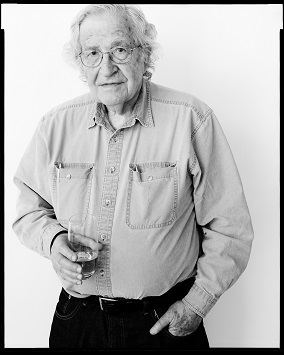
The Nation

The Nature Conservancy
![]()
The Nature of Cities (2010)

The Network of Spiritual Progressives

The New Good Life: Living Better Than Ever in an Age of Less
The New Rulers of the World (2001)
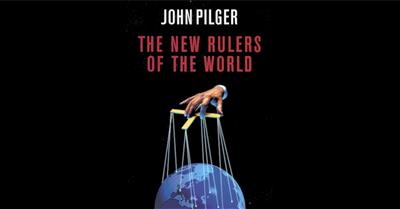
The New Zealand Experiment: A World Model for Structural Adjustment?
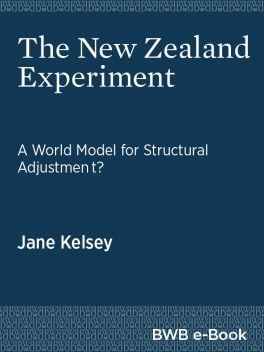
The Next American Revolution: Sustainable Activism for the Twenty-First Century
The Nonviolence Handbook: A Guide for Practical Action
The Nonviolence Training Hub

The Nonviolence Training Hub – Training Partners

The Objectivity of Ethics and the Unity of Practical Reason
![]()
The Palestine Chronicle

The Parameters of Nonviolent Action: What Makes an Action Nonviolent
![]()
The Passage to Cosmos: Alexander Von Humboldt and the Shaping of America
The Path of Most Resistance: A Step-by-Step Guide to Planning Nonviolent Campaigns

The Peace Abbey
![]()

